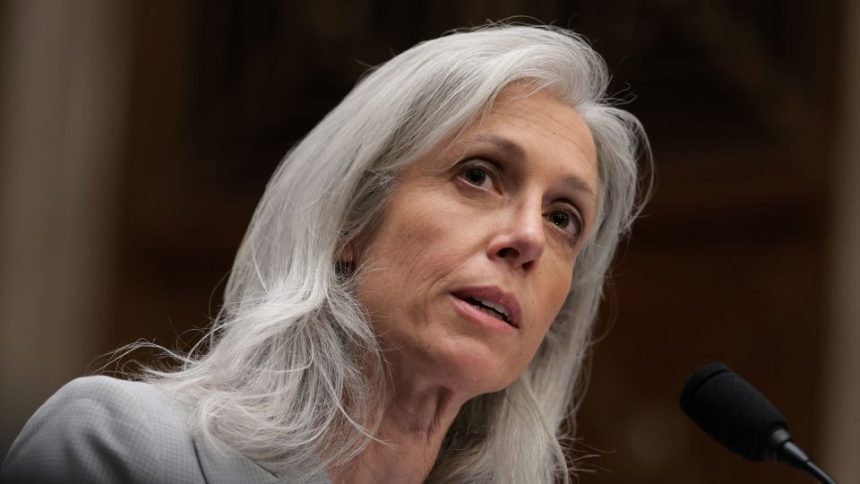As president of the now defunct University Senate, DeShana Collett, Ph.D, PA-C, prominently opposed a change in the University of Kentucky’s internal governance. (University of Kentucky photo)
The last chair of the disbanded University Senate has left the University of Kentucky after UK agreed to pay her $375,000 and she agreed to not seek university records under the state’s open records law.
DeShana Collett, formerly a tenured professor in physician assistant studies, played a prominent role last year in opposing a change to UK’s internal governance that she and others warned would strip faculty of decision-making power over academic decisions. UK President Eli Capilouto recommended creating a faculty senate to replace the University Senate.
The UK Board of Trustees approved the change over the faculty objections.
UK President Eli Capilouto (Photo by Mark Cornelison | UK Photo)
In the final meeting of the University Senate, Collett presided over a vote of no confidence in Capilouto.
Collett and the university entered a separation agreement at the end of June, according to documents obtained by the Kentucky Lantern.
“She was not comfortable in the environment that she was subjected to after the administration abolished the University Senate and she felt like it was in her best interest to separate her employment,” said Joe Childers, an attorney representing Collett.
The aftermath of the no confidence vote was the subject of an article in The Chronicle of Higher Education that reported Collett had written to faculty members warning of acts of retaliation by the UK administration after the vote. Collett told the Chronicle that the UK provost’s office had taken control of the University Senate’s online voting system and would have access to how individual Senate members had voted on Capilouto.
In an Aug. 20, 2024 email, Collett forwarded a message that she had shared with faculty members to Lisa Tannock, a former associate provost for faculty advancement saying that provost office employees were assuming control of the University Senate’s voting system, a PollEverywhere account, which had access to all Senate-recorded votes.
Collett added in her email to Tannock that the University Senate did not keep records of individual members’ votes and was not required to.
Tannock said in a response that “this matter is under serious investigation with the possibility of becoming a criminal investigation.” Childers told the Lantern that UK’s general counsel later said there was no investigation.
Throughout the past year, Childers also submitted open records requests to the university on behalf of his client. He said they were denied as “unduly burdensome,” until appeals were sent to the Kentucky attorney general’s office. The requests sought emails among UK administrators mentioning Collett.
UK agreed to provide the documents by July 31, but settlement discussions that resulted in the separation agreement had begun before then, Childers said.
Childers said Collett was paid $375,000 as part of the separation agreement. It also includes a section that requires Collett to not make open records requests to UK, other than for her personnel file, as long as she is not employed by the university. She also agreed to withdraw her pending requests.
Childers said in his experience, a clause like that is not typical in university separation agreements, but UK insisted on it. Collett agreed to get the matter resolved.
Jay Blanton, a spokesperson for UK, told the Lantern “this is a standard settlement agreement with normal terms and conditions.” He added that in the meantime, “the University of Kentucky will focus on what’s most important to the state — how we advance Kentucky by making it healthier, wealthier and wiser.”













